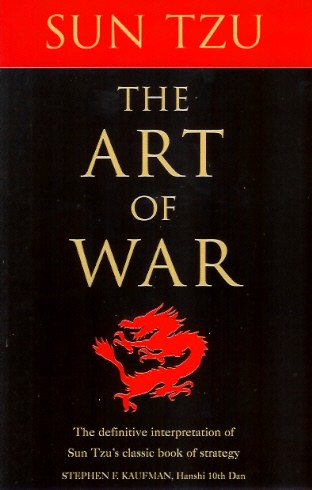Two items:
RAND emeritus David Ronfeldt called my attention today (thanks David!) to this article by futurist David Brin:
Forgetting our American tradition:The folly of relying exclusively on a professional protector caste
Today we face (but largely ignore) a major historical anomaly. From our nation’s birth all the way until the end of the Vietnam War, America’s chief approach to dealing with danger — both anticipated threats and those that took us by surprise — was to rely upon a robust citizenry to quickly supplement, augment and reinforce the thin veneer of professionals in a relatively small peacetime warrior-protector caste. Toward this end, society relied primarily upon concepts of robustness and resilience, rather than attempting to anticipate and forestall every conceivable danger.
This emphasis changed, dramatically, starting with the Second World War, but accelerating after Vietnam. Some  reasons for the shift toward professionalism were excellent and even overdue. Nevertheless, it is clearly long past-time for a little perspective and reflection.
reasons for the shift toward professionalism were excellent and even overdue. Nevertheless, it is clearly long past-time for a little perspective and reflection.
Over the course of the last two decades, while doing “future threats” consultations for DoD, DTRA, NRO, CIA, the Navy, Air Force, etc., I have watched this distinction grow ever-more stark — contrasting an older American reflex that relied on citizen-level resilience vs. the more recent emphasis on anticipation and the surgical removal of threats. Inexorably, the Protector Class has increasingly come to consider itself wholly separate from the Protected. In fact, our military, security and intelligence services have reached a point where – even when they engage in self-critical introspection – they seem unable to even ask questions that ponder resilience issues.
Instead, the question always boils down to: “How can we better anticipate, cover, and overcome all conceivable or plausible threat envelopes?”
While this is a worthy and admirable emphasis for protectors to take, it is also profoundly and narrowly overspecialized. It reflects a counterfactual assumption that, given sufficient funding, these communities can not only anticipate all future shocks, but prepare adequately to deal with them on a strictly in-house basis, through the application of fiercely effective professional action…..
Read the rest here.
Secondly, I wanted to highlight that Don Vandergriff, a student of John Boyd’s strategic philosophy and the pioneer of adaptive leadership training , recently received a glowing mention in Fast Company magazine:
How to Buck the System the Right Way
….What GM is doing is mining the talent of its leaders in the middle. To lead up effectively, there are three characteristics you need to leverage.
Credibility. You must know your stuff especially when you are not the one in charge. When you are seeking to make a case to senior manager, or even to colleagues, what you know must be grounded in reality. At the same time, so often, as is the case at GM, you need to be able to think and act differently. So your track record reinforces your credibility. That is, what you have done before gives credence to what you want to do in the future.
Influence. Knowing how to persuade others is critical for someone seeking to effect change. If you do not have line  authority, how else but through influence can you succeed? Your influence is based on credibility, but also on your proven ability to get things done. Sometimes persuasion comes down to an ability to sweet talk the higher ups as well as put a bit of muscle on colleagues (nicely of course) in order push your initiative through.
authority, how else but through influence can you succeed? Your influence is based on credibility, but also on your proven ability to get things done. Sometimes persuasion comes down to an ability to sweet talk the higher ups as well as put a bit of muscle on colleagues (nicely of course) in order push your initiative through.
Respect. Mavericks, which GM said it was looking for, may not always be the most easiest people to get along with on a daily basis. After all, they are ones seeking to buck the system. But mavericks who succeed are ones who have the best interests of the organization at heart and in time earn the respect of thier colleagues.
One maverick I know who has been pushing to change the way the U.S. Army trains and promotes its officer corps is Don Vandergriff. A former Army major and twice named ROTC instructor of the year while at Georgetown, Vandergriff has tirelessly badgered the Army’s senior leadership to institute changes that would recognize and promote officers who knew how to lead from the middle.
And now, after more than a decade of his writing and teaching, it is paying off. West Point has become the latest but perhaps the most prestigious Army institution to teach principles of adaptive decision making that Don developed. Many of Don’s students have implemented such lessons successfully under combat situations in Iraq and Afghanistan.
Read the rest here.
Don’s methods excel at getting students to think creatively under the constraints of limited information, situational uncertainty and time pressure ( making the cognitive effect somewhat akin to the effects produced by the Socratic method and complex game playing).
ADDENDUM:



This would also be a suitable post to remind readers that Dr. Chet Richards has moved his blogging operations to a new site, Fast Transients.
Adjust your favorites and blogrolls accordingly.




 end myself recently, related to
end myself recently, related to  reasons for the shift toward professionalism were excellent and even overdue. Nevertheless, it is clearly long past-time for a little perspective and reflection.
reasons for the shift toward professionalism were excellent and even overdue. Nevertheless, it is clearly long past-time for a little perspective and reflection.




